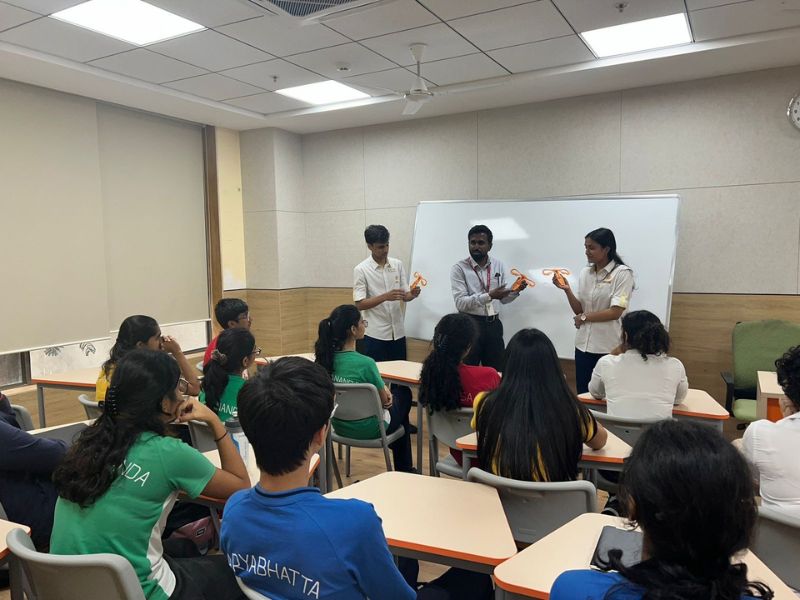On the occasion of Children’s Day, Aditya Birla World Academy (ABWA) and Ujaas, a non-profit engaged in promoting menstrual health, both under the aegis of Aditya Birla Education Trust, have announced a collaboration to promote menstrual hygiene in rural India. Under this initiative, students of ABWA are helping Ujaas in developing innovative solutions and providing support to some of the challenges that are encountered while educating rural girls about menstrual health and hygiene.
Ujaas undertakes workshops in schools and colleges for girls between the age of 9 to 18 years to provide age-appropriate information about menstrual health and hygiene for girls, thus supporting them with the right knowledge and information on their menstrual health. There are three key issues frequently encountered by Ujaas trainers during their efforts to educate young girls. The girls are often not in a position to store sanitary napkins hygienically and are, therefore, vulnerable to infections, such as bacterial vaginosis, urinary tract infections, and even cervical cancer. They also lack access to smartphones, due to which they are unable to use apps to track their periods, and face social taboos in using the calendars at their homes. Period tracking is vital, not only for understanding their menstrual cycle, but also for discovering any anomalies that may indicate reproductive health issues such as Polycystic Ovarian Disease (PCOD). In addition, girls who are visually impaired are unable to understand the reproductive system as available models are not suitable for their use.
To tackle the first problem of safe storage of sanitary pads, ABWA students have designed a paper bag that is easy to make and does not require glue, staples, scissors, or other tools, since rural girls can also face a challenge in acquiring these. They also designed a 12-month calendar that can be made on a single sheet of paper, which can then be used by the girls as their personal period tracker and can be stored privately. For visually impaired girls, the students have developed a model of the female reproductive system that uses recycled cardboard and is texturized to aid learning by touch. Sessions were conducted by the ABWA students to demonstrate to Ujaas trainers how to create and use these tools, which they will then use to educate rural girls about the same.
Discussing the initiative, Radhika Sinha, Principal, Aditya Birla World Academy, said: “One of our key aims at ABWA is to encourage empathy and inclusivity among our students, as part of their holistic development. We undertake a number of activities that help to inculcate in them a strong sense of social responsibility and a passion for solving problems. Through this initiative, our students have taken on the commendable task of contributing value to the very important discourse about menstrual health and hygiene for rural girls who do not enjoy the same advantages as their urban counterparts.”
Further, discussing the initiative, Advaitesha Birla, Sociopreneur and Founder Ujaas, said: “We are delighted to form a collaboration with Aditya Birla World Academy School to encourage conversations about menstrual health and hygiene amongst students fostering further learning in menstrual health. Today’s youth are change makers and understand the impact of user-friendly innovations at the grass root level. We are optimistic that such collaboration can encourage creative and sustainable solutions for such a prevalent and important issue such as menstrual health and hygiene”.
